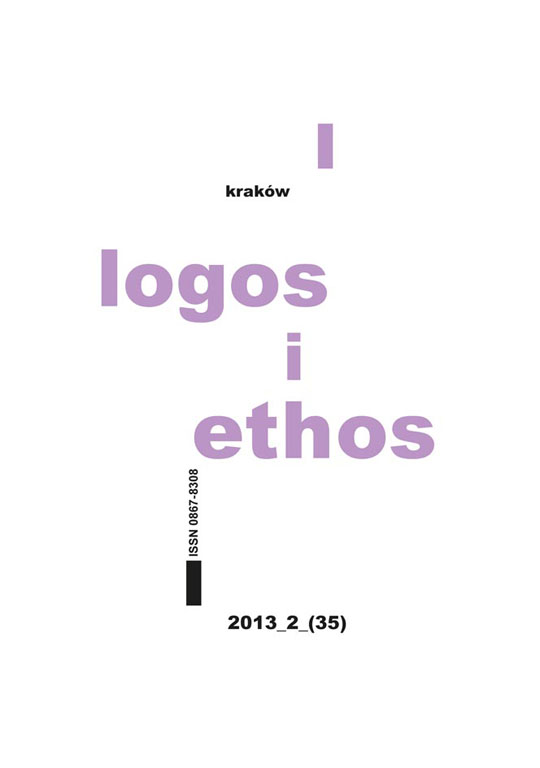Kontemplacja a poznanie w filozofii Plotyna
DOI:
https://doi.org/10.15633/lie.162Słowa kluczowe:
Plotinus, contemplation, knowledge, metaphysics, mysticismAbstrakt
Plotinus’ mysticism is a controversial field of study. While some scholars see in it the essential aspect of his system, others consider it to be of little importance. Interpretations of the “mystical union” with the One also differ from monistic to theistic, and the debate seems to be far from an ultimate conclusions. This paper is an attempt to find a different approach to this problem, namely, by examining relationships between contemplation (which appears to be a more useful term than “mystical experience”) and knowledge in the system of Plotinus. It is suggested that the two main types of contemplation are “noetic” contemplation, which is a paradigm for knowledge and derives from Plato’s and Aristotle’s account of noesis, and “hypernoetic” contemplation which is a borderline phenomenon for ancient philosophy, because it is a state of beatifying unknowing. While noetic contemplation is more typical of Western philosophy, hypernoetic contemplation is a phenomenon similar to what Eastern mystical religions strive for. Even though Plotinus’ philosophy seems to incorporate an experience that is central to the Eastern thought, the author of the Enneads remains a profoundly Western thinker, trying to put the state of contemplative unknowing in the context of intellectual, rational pursuit of truth and happiness.
Pobrania
Opublikowane
Numer
Dział
Licencja
Prawa autorskie (c) 2013 Mateusz Stróżyński

Utwór dostępny jest na licencji Creative Commons Uznanie autorstwa 4.0 Międzynarodowe.
W kwestii praw autorskich obowiązują następujące zasady:
1. Twórca oświadcza, że służą mu prawa autorskie do utworu i że nie są ograniczone w zakresie objętym niniejszym oświadczeniem oraz że utwór jest dziełem oryginalnym i nie narusza praw autorskich innych osób.
2. Twórca zezwala Uniwersytetowi Papieskiemu Jana Pawła II w Krakowie na nieodpłatne, niewyłączne i nieograniczone w czasie korzystanie z utworu, to jest:
- utrwalanie i zwielokrotnianie: wytwarzanie egzemplarzy utworu techniką drukarską, reprograficzną, zapisu magnetycznego oraz techniką cyfrową;
- obrotu oryginałem albo egzemplarzami, na których utwór utrwalono (wprowadzanie do obrotu, użyczenie lub najem oryginału albo egzemplarzy, publiczne wystawienie, wyświetlenie, a także publiczne udostępnianie utworu w taki sposób, aby każdy mógł mieć do niego dostęp w miejscu i w czasie przez siebie wybranym);
- włączenie utworu w skład utworu zbiorowego;
- udzielanie przez Uniwersytet Papieski Jana Pawła II w Krakowie sublicencji Creative Commons Uznanie autorstwa 4.0 Międzynarodowe (CC BY 4.0)
3. Uniwersytet Papieski Jana Pawła II w Krakowie udostępnia utwór na Platformie Czasopism należącej do uczelni, na licencji Creative Commons Uznanie autorstwa 4.0 Międzynarodowe (CC BY 4.0). Tym samym uprawnia wszystkich zainteresowanych do korzystania z utworu pod następującymi warunkami:
- zostanie podany autor i tytuł utworu,
- zostanie podane miejsce publikacji (tytuł czasopisma i adres internetowy do oryginalnie opublikowanego utworu).

